Part 33: XXXII. Martin V 1901-1909 A.D.
Storm clouds were gathering. The power of the Scots Union was growing increasingly troubling. In the spring of 1902, after several years of war, they crushed the power of the German state, now unprotected by their former Byzantine masters. The Scots annexed the northern half of Germania, leaving a poor and underindustrialized rump state in the south.
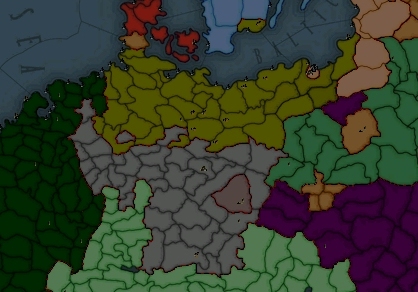
Furthermore, new ideologies were spreading. The Byzantines fought a series of sharp engagements with socialist revolutionaries in eastern Anatolia. Jerusalem reinforced its fortifications, in case the fighting spilled over the border, but fortunately, the Byzantines managed to crush the rebels.
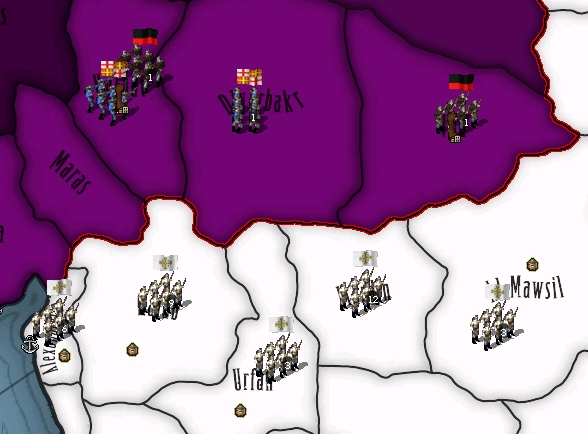
Samuel d'Clemons, an Alexandrian author, released his first novel to universal acclaim. His story of a young boy and his Muslim servant traveling down the Nile on a raft soon became read not just across Jerusalem, but even in Europe and Nicholia.
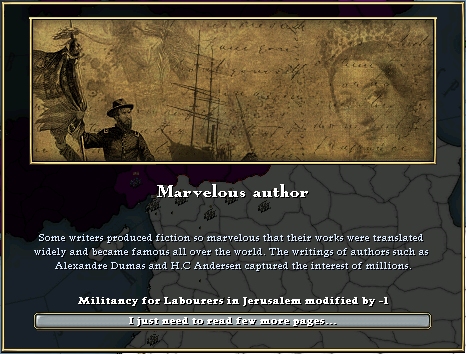
Technological innovations continued apace, with refrigeration becoming available on a widespread commercial basis. This was an enormous boon in Jerusalem's vast desert territories, allowing food to be kept much longer before it spoiled.

In Africa the final shape of the great nations colonies began to take shape, and the Kingdom of Jerusalem now bordered the Amazonian Commonwealth in the wild lands of central Africa. In Nicholia, meanwhile, the Confederates trounced Prussia and took back most of the lands they had formerly lost.
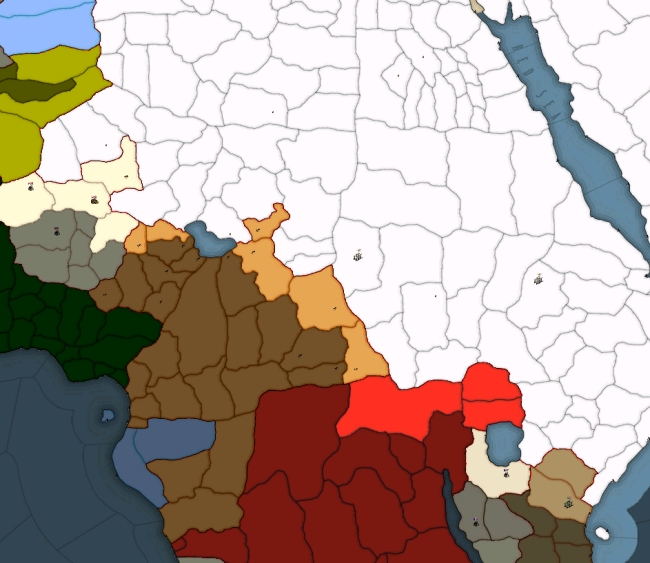
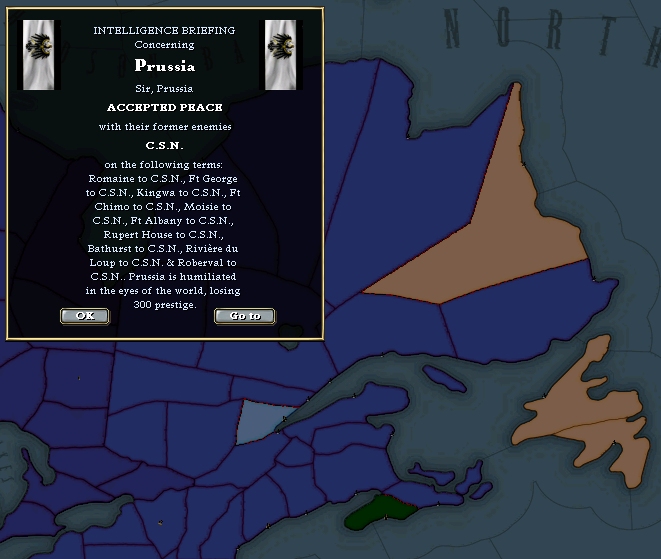
King Martin V had become deeply troubled by the financial weakness of the nations capitalist class. For the last decade and a half there had been dwindling private investment in new railroads and factories. Despite the fact that new technologies existed that could greatly improve the efficiency of Jerusalem's rail network, no one seemed willing to risk their money on them.
Fearing that the Kingdom could be left behind technologically and industrially, the King embarked on a program of changes and reforms. Taxes and tariffs were lowered as far as they could be, while still allowing the Kingdom to make a bit of profit. More importantly, King Martin decided to expand the voting base of parliament to the wealthy capitalists and landowners. He faced fierce opposition from the nobles, who feared the erosion of their own power, but pushed his reforms through anyway.

The political makeup of parliament changed drastically, with the Jerusalem party being reduced to a minority party, while the liberal India House faction winning the next election in 1905. The Laissez Faire polices of India House woule hopefully kickstart the economy back into gear.

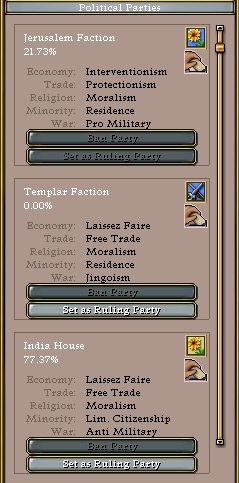
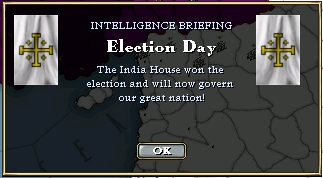
Unable to properly defend their Nicholian possessions, the Prussian government surrendered them to Orleans.

Military researchers in Jerusalem perfected a new method of using poison gas to attack the enemy. Hoping it would never need to be used, King Martin V directed his researchers to design countermeasures in case it was used against the Kingdom. Gasmasks and other defensive devices were soon being shipped to divisions on the Byzantine and Russian borders.
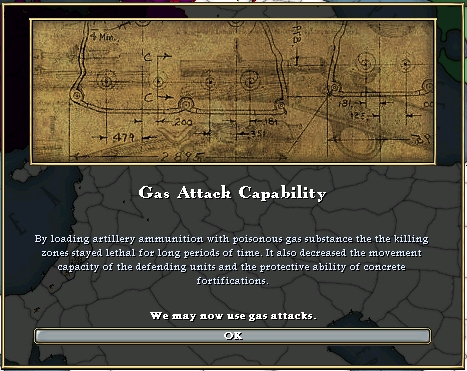
In 1906, the CSN seized large strips of the Amazonian coast in a short but brutal war. The Russians also continued their expansion into China, taking even more land from the Chinese who, despite their new attempts to modernize their nation, still couldn't match the Russian army.

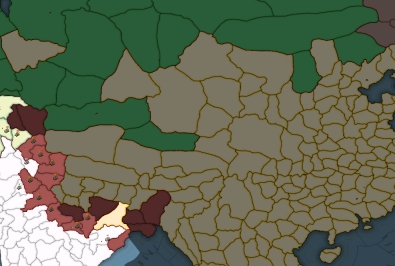
Jerusalem's defensive positions along the Russian border continued to grow more complex. Double trenches and pillboxes now stretched from the Caspian sea to the Himalayas. The situation seemed stable for now.
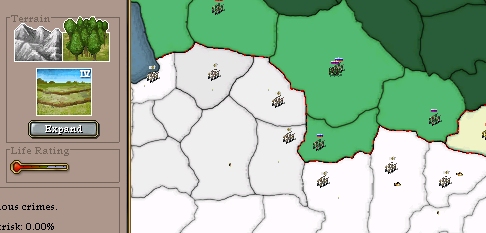
Trouble came in March, 1908. A massive Russian invasion forced thundered across the border of Beroda. Jerusalem had long suffered Beroda to remain as a buffer between the Kingdom and Russia and China. Now the armies of Beroda melted away before the Russia armies. Russian troops raced for Delhi and Bihar. Left unopposed, they would not only own northern India, but completely flank Jerusalem's defensive lines.
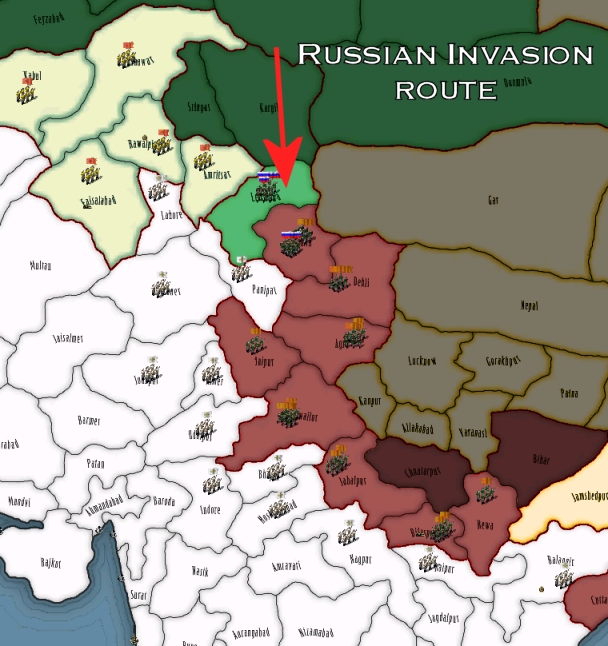
Many in Jerusalem agitated for immediate war with the Russians. The Russian provocation was intolerable, and a serious threat to Jerusalem's position in India. However, the Russians had managed to sign a defensive alliance with the Scots Union, and any attack by Jerusalem would likely trigger another Great War. Nevertheless, King Martin V was ready to order a general attack until he was approached by his eldest son, Baldwin.

Baldwin d'Anjou, 1908
Young Baldwin d'Anjou, Duke of India, Ceylon, and Antipodea, was wary of getting the Kingdom involved in another of the major wars that seemed to be wracking the rest of the world. Baldwin proposed a counter-invasion of Beroda, one that would block the Russian advance into India. If Russia then chose to declare an aggressive war on Jerusalem, the Scots would be unlikely to honor a purely defensive treaty.
Willing to take the risk, King Martin V agreed to his sons plan. Jerusalem's troops crossed the border into Beroda in May, racing for the city of Agra, which fell to the Kingdom just before the Russians seized Delhi. The Russians were now in a bind. They could not advance further into Beroda without a direct and unprovoked attack on Jerusalem. Outmaneuvered, the Russian's signed a treaty with Beroda recognizing their gains and backed down from direct conflict with the Kingdom of Jerusalem.

Duke Baldwin forced Beroda to cede all of their western territories, leaving a few in the east which were rapidly occupied by China. Unwilling to let the Russians spring another surprise on the Kingdom, Jerusalem issued a declaration of war on Panjab and quickly annexed them in early 1909.
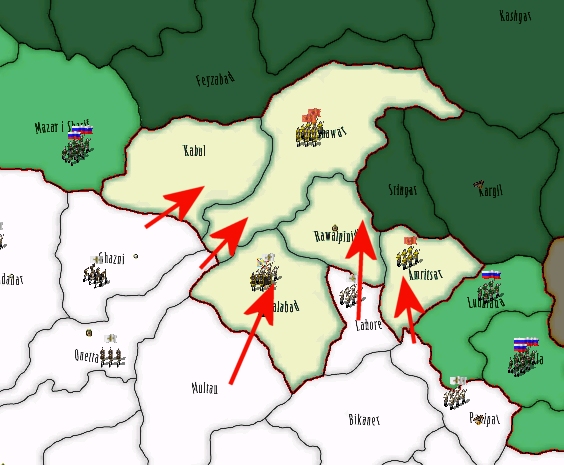
For better or worse, the border with Russia had now doubled in length. Orders were sent out to expand the Kingdom's long line of fortifications along the new border, but such extensive construction would take many years to complete.
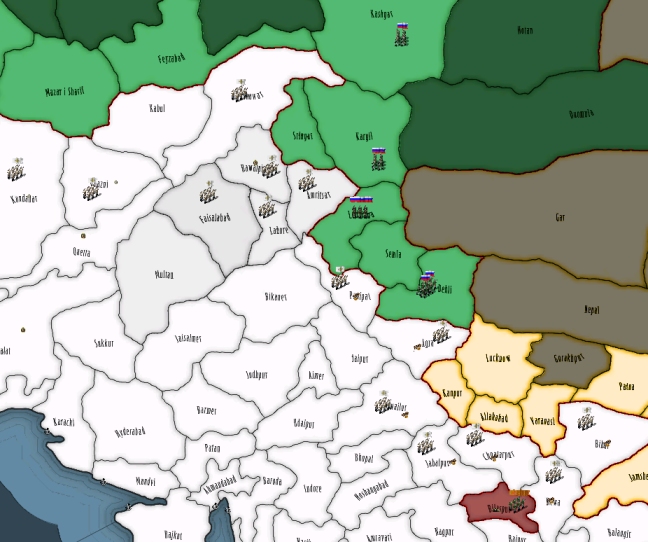
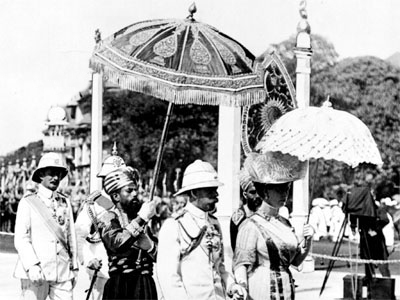
King Martin V, Duke Baldwin, and the Royal family tour Agra, near the new Russian border.
Despite their vast resources and other successes, the Scots were forced to cede much of their west African territory to Leon.
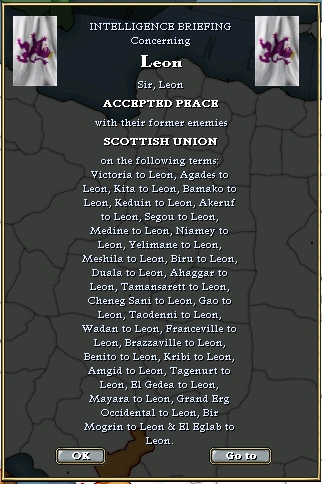
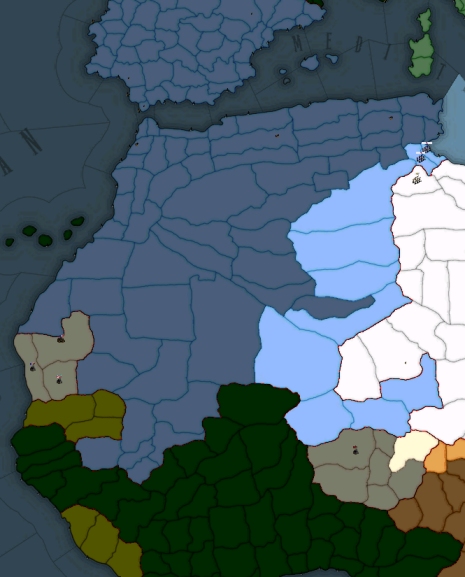
Experimental armored vehicles also began to be fielded by several countries, although King Martin V was unimpressed by the demonstrations that he saw. Furthermore, the Kingdom's capitalists seemed quite unwilling to invest in tank factories. Nevertheless, the day when they changed the face of warfare would come…
